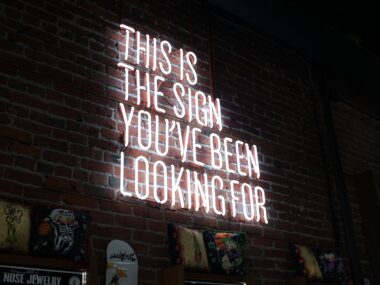Mental health is an important topic in today’s world. It affects everyone, whether they realize it or not. We are all capable of feeling overwhelmed and struggling with our mental health, but the one thing that keeps us all going is support. Recently, the suicide of Stephen “TWitch” Boss has sparked conversations about mental health and how to check in on friends who always seem happy and are actually hurting. This article will discuss how to identify when someone needs help, how to support them through their struggles, and ultimately how to find support for yourself when you need it most.
Identifying When Someone Needs Help
The first step in checking in on someone is recognizing signs that they may be struggling with their mental health. Signs can range from changes in appearance or behavior to changes in mood or attitude. While some of these signs may be more obvious than others, it’s important that we take notice of any changes as they can signal a need for help. It’s also important to listen without judgment if your friend chooses to open up about their struggles; being there for them in a non-judgmental way can make all the difference in helping them get through tough times.
Supporting Your Friends Through Struggles
Once you have identified signs that your friend may be struggling, it’s important to offer your support however you can—whether that means offering a listening ear or suggesting resources such as counseling services or hotlines. Offering your own experiences with mental health issues can also be helpful; this lets them know they are not alone in their struggles and gives them hope that they can get through this difficult time. Encouraging positive self-talk and focusing on building coping mechanisms (such as journaling or taking walks) can also help your friend stay strong during their journey toward healing.
Finding Support For Yourself
It’s also important to remember that any journey towards healing starts with ourselves; before we can truly be there for our struggling friends, we must find support for ourselves first. It may seem daunting at first, but plenty of options are available—from therapy sessions and hotlines to online forums and books! Additionally, many organizations offer free resources such as educational materials and support groups, which can provide invaluable guidance during difficult times. Ultimately, finding the right form of help is key—so don’t hesitate to explore all your options until you find what works best for you!
Some of my favorite resources
A Therapist
This was my first year in therapy, and I always knew I needed one. Having a safe space to talk and get help is something I pray every person has an opportunity to experience.
https://www.self.com/story/black-mental-health-resources
Follow Positive People Online
I will check social media. I’m a CEO, and I have to, so it’s important to see positive words and messaging on my feed. Find and follow people who offer education, inspiration, and motivation.
Self-Care Check In
One day I was doing my typical walk through Books A Million and found this book, and it’s been super helpful in tracking and releasing feelings.
A Journal
Have a journal that you keep in your purse and by your bed at night and write. Write what you feel and what you’re thinking, and begin to take note of patterns like triggers for you and things that bring joy. Life is always teaching us lessons, and I know that if you pay more attention to what they are, you will grow.
MotivatHER to Make It Happen Notebook
Walks while listening to affirmations or meditations
I’ve recently started taking walks and using an app called PepTalk. It’s important that you’re doing a deep pour-in while you’re out. A PepTalk helps, and this app is EVERYthing!!!
https://apps.apple.com/us/app/peptalk-daily-motivation-app/id976885594
No matter where we are on our journey towards healing, it’s essential that we take care of ourselves first before we check in on those around us who might need extra love and support during difficult times—and luckily, there are plenty of resources available nowadays so that we never have to feel alone in our struggles. By recognizing signs of distress among our friends, offering our own experiences as encouragement when necessary, and finding the right forms of help for ourselves—we can make sure no one ever has to choose between checking in or checking out again!









